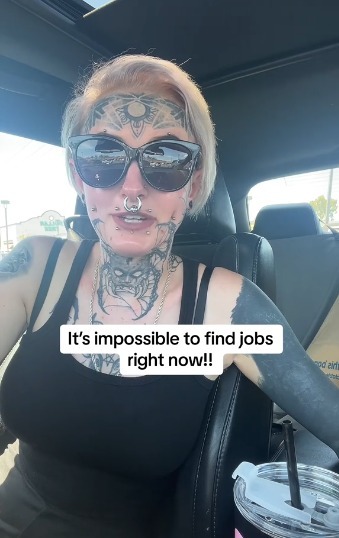Ash Putnam, a 23-year-old with tattoos and piercings, recently shared a frustrating story on TikTok about her experience applying for a job at TJ Maxx. Her video, where she expressed her disappointment over being rejected and speculated that her appearance played a role, quickly went viral, sparking a debate on body art and hiring practices. Putnam explained that the rejection email cited a “lack of experience,” but she felt this response was impersonal and that her visible piercings and tattoos may have been a factor. Although her appearance wasn’t explicitly mentioned, she suspects implicit bias influenced the decision.
The video resonated with millions, gathering thousands of comments. Some viewers empathized, sharing similar experiences and advocating for more inclusivity in hiring, while others criticized her appearance, suggesting her body art was inappropriate for the workplace. Supporters argued that tattoos and piercings are personal expressions and should not impact job eligibility. One user remarked, “Your work ethic isn’t defined by tattoos,” while others pointed out that conservative grooming standards remain common, particularly in customer-facing roles.
Experts, like sociologist Dr. Samantha Kent, note that balancing inclusivity with brand image can be challenging for businesses, especially in industries where traditional client expectations persist. Kent observes that while younger generations are more accepting of body art, some employers worry about alienating older clients. She suggests that businesses reconsider appearance-based hiring practices to reflect changing societal values.
Putnam advocates for more inclusive hiring, urging companies to assess candidates on skills, not looks. She believes judging applicants based on appearance undermines the diversity many businesses aim to uphold. Her experience has fueled a conversation about whether outdated standards of professionalism align with today’s values of authenticity and individuality. The debate highlights the ongoing shift in workplace expectations, as more companies, like Starbucks, relax their dress codes to embrace self-expression and exclusivity.
